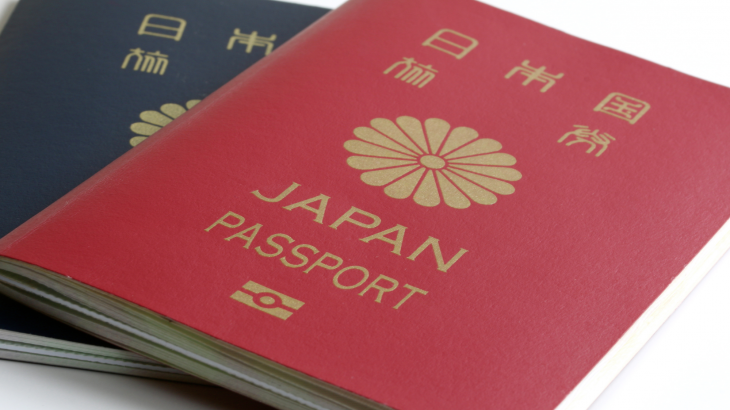The number of foreigners aiming to build their careers in Japan has been increasing year by year. According to data from Japan’s Ministry of Health, Labour and Welfare, the number of foreign workers reached an all-time high in 2023, with strong demand particularly in the manufacturing, service, and IT sectors. However, to work legally in Japan, foreigners must complete several important procedures, including obtaining the proper residence status (visa) and confirming the permitted scope of work. Based on official information from the Immigration Services Agency of Japan (official website), this article clearly explains each step for foreigners seeking employment in Japan.
- 1. Types and Features of Work-Related Residence Status (Visa) in Japan
- 2. Process for Foreigners to Obtain Employment in Japan
- 2.1. ① Determine the Appropriate Residence Status
- 2.2. ② Apply to Companies and Receive a Job Offer
- 2.3. ③ Apply for a Certificate of Eligibility (COE) — For Applicants Outside Japan
- 2.4. ④ Apply for a Change of Residence Status — For Applicants Already in Japan
- 2.5. ⑤ Enter Japan, Receive a Residence Card, and Start Working
- 3. Important Points to Keep in Mind After Starting Work
- 4. Conclusion
Types and Features of Work-Related Residence Status (Visa) in Japan
To work in Japan, foreigners must obtain the appropriate residence status (visa) according to their occupation and form of employment. Each visa type defines the scope of work and eligibility criteria differently, so it is essential to select the one that best matches your educational background and skill set.
Engineer / Specialist in Humanities / International Services Visa (技術・人文知識・国際業務)
This is the most common work visa, designed for individuals with a university degree or professional expertise. Eligible job categories include engineers, translators, marketers, and designers. Applicants must have relevant academic or professional backgrounds and sufficient Japanese language proficiency for their role.
Specified Skilled Worker Visa (特定技能) — For Labor-Shortage Industries
Introduced in 2019, the Specified Skilled Worker visa allows foreigners to work in 14 industries facing severe labor shortages, such as nursing care, hospitality, food service, construction, and manufacturing. Applicants must pass both a Japanese Language Proficiency Test (N4 or higher) and a skills test. It is suitable for individuals without prior work experience who wish to start a career in Japan.
Business Manager Visa (経営・管理) — For Entrepreneurs and Executives
Foreign entrepreneurs wishing to start and manage a business in Japan must obtain a Business Manager visa. A minimum capital of approximately 5 million yen and a physical office space are required. This visa encourages business development and job creation in Japan’s economy.
Process for Foreigners to Obtain Employment in Japan
① Determine the Appropriate Residence Status
The first step is to confirm which visa type applies to your intended occupation. For example, IT engineers and translators typically apply for the “Engineer / Specialist in Humanities / International Services” visa, while those in nursing care or food service apply for the “Specified Skilled Worker” visa. Details can be found on the Immigration Services Agency of Japan’s official website.
② Apply to Companies and Receive a Job Offer
Once you find a suitable company, submit your application and attend interviews. After receiving a job offer, the company will sign an employment contract with you and prepare the necessary documents for visa application. International students can also utilize university career centers, Hello Work (public employment offices), and foreign employment support agencies.
③ Apply for a Certificate of Eligibility (COE) — For Applicants Outside Japan
If you are applying from overseas, your employer or an authorized representative must submit a “Certificate of Eligibility” application to the Immigration Services Bureau in Japan. The screening process typically takes 1–3 months. Once approved, you must use the certificate to apply for a work visa at your local Japanese embassy or consulate. Note that the certificate is valid for only three months after issuance, and you must enter Japan within that period.
④ Apply for a Change of Residence Status — For Applicants Already in Japan
Those already residing in Japan, such as international students, must apply for a “Change of Residence Status.” The application should be submitted to the nearest Immigration Bureau, and processing usually takes between two weeks and one month. Once approved, a new Residence Card will be issued, allowing you to begin working legally.
⑤ Enter Japan, Receive a Residence Card, and Start Working
Upon arrival in Japan, you will receive your Residence Card at the airport after immigration inspection. This card serves as your official identification and is required for employment, residence registration, and insurance procedures. After starting your job, you must enroll in social insurance, employment insurance, and register your address with the local government office.
Important Points to Keep in Mind After Starting Work
Renew Your Residence Status on Time
Most work visas are valid for one or three years. Renewal can be done within three months before the expiration date. Failing to renew on time may result in being considered an illegal resident, so it is crucial to track your visa’s validity period carefully.
Handle Visa Changes Properly When Changing Jobs
If you change jobs and your new position differs from your current visa category, you must apply for a “Change of Residence Status.” For example, switching from an IT engineer role to the food service industry requires a new visa type. Failure to update your visa may lead to penalties or cancellation of your residence status.
Do Not Work Beyond Your Visa’s Permitted Scope
Working outside your visa’s approved scope (such as part-time work in convenience stores or restaurants without proper authorization) constitutes unauthorized employment. To engage in side jobs, you must obtain official permission for “activities outside your authorized status of residence.”
Conclusion
For foreigners seeking to work in Japan, it is essential to choose the correct visa, complete all required procedures, and comply with Japanese immigration laws. Mistakes in visa type or renewal can result in serious complications. Always check the latest information on the Immigration Services Agency of Japan’s official website and prepare carefully. With the right knowledge and preparation, you can begin a stable and successful career in Japan.









